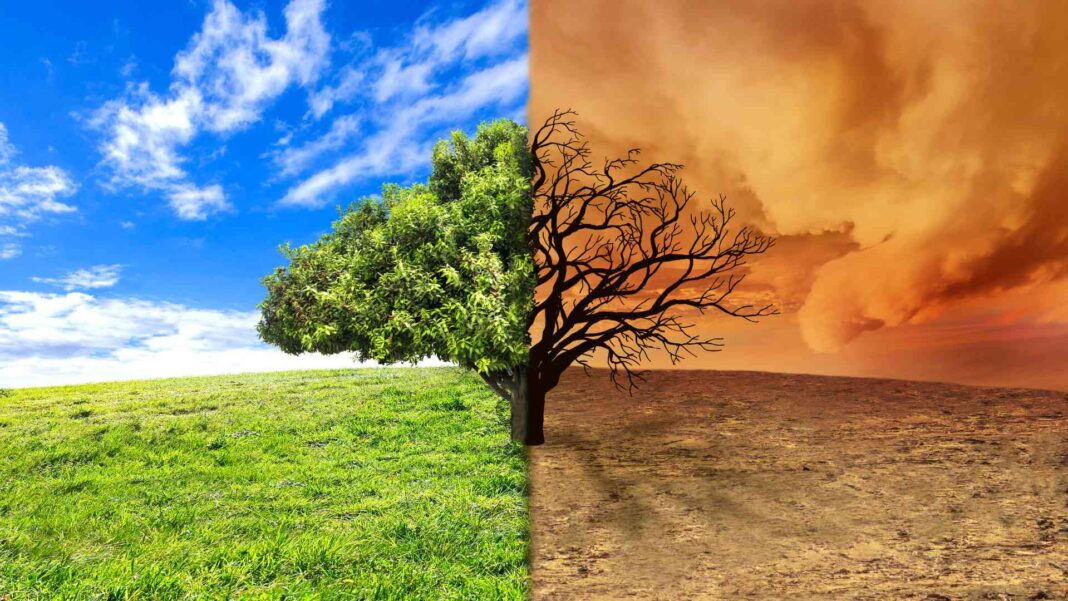How Climate Change Affects Human Life? Climate change has emerged as one of the most pressing challenges of our time. Its impacts are far-reaching, affecting not only the environment but also the very fabric of human life. From extreme weather patterns to food insecurity, the consequences of climate change are no longer a distant threat but a present reality demanding urgent attention.
Understanding Climate Change
What is Climate Change?
Climate change refers to long-term shifts in temperatures and weather patterns, primarily driven by human activities such as burning fossil fuels, deforestation, and industrial processes. While natural factors like volcanic eruptions and solar variations contribute to climate variability, human-induced changes have accelerated the process significantly.
Causes of Climate Change
The primary drivers of climate change include:
- Greenhouse Gas Emissions: Carbon dioxide (CO₂), methane (CH₄), and nitrous oxide (N₂O) trap heat in the atmosphere.
- Deforestation: Trees, which act as carbon sinks, are being cleared at alarming rates.
- Industrial Activities: Factories and power plants release significant amounts of greenhouse gases.
The Direct Impacts on Humans
Health Implications of Climate Change
Rising temperatures and altered weather patterns have led to:
- Heatwaves: Increasing heat-related illnesses and fatalities.
- Disease Spread: Expanded ranges of vector-borne diseases like malaria and dengue.
- Respiratory Issues: Poor air quality from pollution and wildfires.
Increased Frequency of Natural Disasters
Climate change intensifies hurricanes, floods, and droughts, causing loss of life, infrastructure damage, and displacement. Coastal regions are particularly vulnerable to rising sea levels and storm surges.
Water Scarcity and Access Challenges
With glaciers melting and rainfall patterns shifting, access to freshwater is becoming a critical issue, especially in arid and semi-arid regions.
Food Security Under Threat
Crop yields are declining due to unpredictable weather, pests, and soil degradation. This exacerbates hunger and malnutrition, particularly in developing countries.
Social and Psychological Effects
Forced Migration and Climate Refugees
Rising sea levels and extreme weather events are displacing millions. Entire communities are forced to abandon their homes, creating a new category of refugees.
The Psychological Toll on Communities
Climate anxiety, depression, and trauma are increasingly reported among affected populations. The uncertainty of future impacts only deepens this psychological burden.
Social Inequalities in Climate Impact
Vulnerable groups, such as low-income communities and indigenous populations, often bear the brunt of climate change due to limited resources and adaptive capacity.
Adaptation and Mitigation
Renewable Energy and Technological Solutions
Transitioning to solar, wind, and other renewable energy sources can reduce greenhouse gas emissions significantly. Innovations in carbon capture and storage technologies are also promising.
Global Agreements and Policies
International frameworks like the Paris Agreement aim to unite countries in reducing emissions and limiting global warming to 1.5°C above pre-industrial levels.
Role of Education and Awareness
Empowering individuals and communities through education fosters informed decisions and proactive measures. Grassroots movements play a vital role in holding governments and corporations accountable.
How Individuals Can Help
Sustainable Practices at Home
- Reduce energy consumption by using energy-efficient appliances.
- Opt for public transport, cycling, or walking instead of private cars.
- Adopt a plant-based diet to lower your carbon footprint.
Advocacy and Community Efforts
Participate in local initiatives, support climate policies, and raise awareness about the urgency of climate action.
FAQs
What are the main causes of climate change?
Human activities like burning fossil fuels, deforestation, and industrial emissions are the leading causes.
How does climate change affect health?
It increases heat-related illnesses, spreads vector-borne diseases, and exacerbates respiratory issues due to pollution.
Can climate change be reversed?
While the damage can’t be entirely undone, mitigation efforts like reducing emissions can slow down and possibly stabilize the effects.
What is the role of governments in combating climate change?
Governments play a crucial role in creating and enforcing policies, funding renewable energy projects, and promoting sustainable practices.
How can individuals contribute to combating climate change?
Adopting sustainable habits, reducing waste, and advocating for change are effective ways individuals can contribute.
What is the economic impact of climate change?
It disrupts industries like agriculture, increases disaster recovery costs, and affects global trade.
Conclusion
The effects of climate change on human life are profound and multifaceted, impacting health, economies, and social structures. Yet, with collective action, innovative solutions, and a commitment to sustainability, humanity can navigate this challenge and build a resilient future. Addressing climate change is not just an environmental necessity—it is a moral imperative to ensure the survival and well-being of future generations.
Visit our homepage Turk Blogs for more articles.





